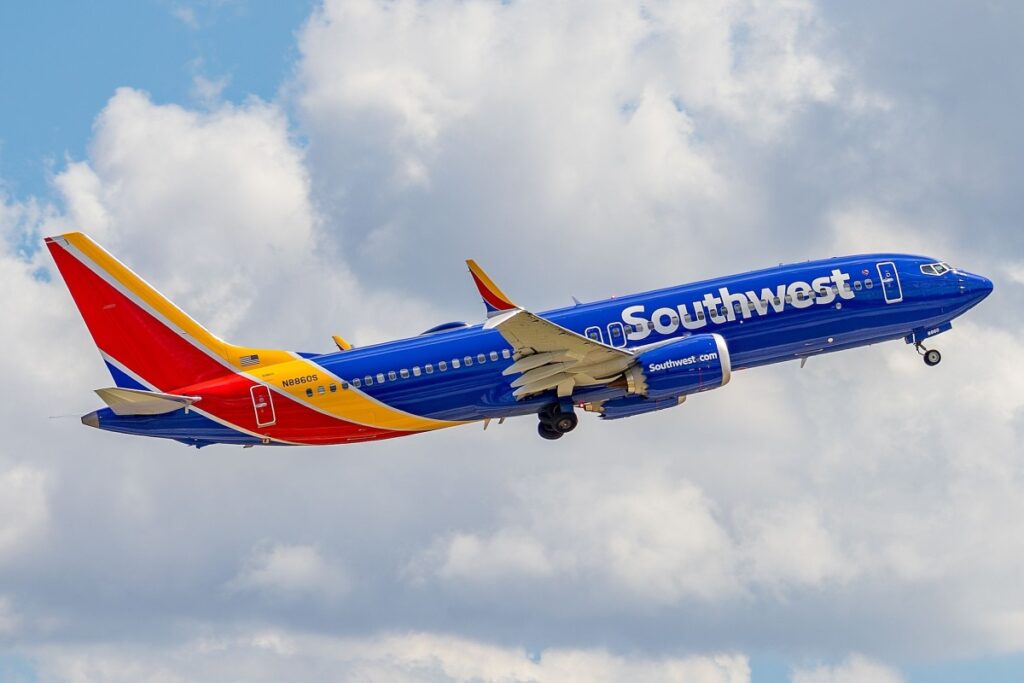Southwest Airlines is preparing to introduce significant modifications to its seating policy for plus-size passengers, changes that will take effect on January 27, 2026. The revisions coincide with the airline’s broader shift to assigned seating, replacing its long-standing open-seating model. Under the new rules, passengers who cannot sit comfortably between the armrests of a single seat must purchase an additional seat at the time of booking.
Refunds for the second seat will only be possible under restricted conditions. Travelers must have purchased both seats in the same fare class, the flight must not be completely full, and a refund request must be submitted within 90 days of the travel date. This represents a considerable departure from Southwest’s previous approach, which allowed customers either to buy a second seat with a guaranteed refund or to request a complimentary extra seat at the airport if available.
Southwest has stated that the move is designed to align with its new seating system and provide consistency across all fare categories. However, critics argue that it introduces uncertainty and financial risk for many customers.
Impact On Travelers And Advocacy Groups
The revised conditions have sparked concern among passenger advocacy organizations and within the plus-size community. Tigress Osborn, head of the National Association to Advance Fat Acceptance, described the policy as “devastating”, suggesting it could discourage individuals from flying altogether due to the risk of paying for two seats without reimbursement. She emphasized that the earlier version of the program had been one of the few examples of a major airline implementing a customer-friendly solution for larger passengers.
Travel blogger and influencer Jason Vaughn, who documents his experiences through the platform “Fat Travel Tested,” echoed these concerns. Vaughn criticized the airline for rolling back a practice that had once set it apart from competitors. In his view, the new rule undermines inclusivity and leaves customers with less certainty when booking flights.
For many travelers, the most controversial change is the removal of the option to request a complimentary additional seat at the airport on the day of travel. This flexibility had been particularly important for those flying on tight budgets. Under the new system, that option no longer exists, making advance planning and additional expense unavoidable.
Broader Industry Context
The decision comes as Southwest continues to implement sweeping reforms to its business model. Earlier in 2025, the airline ended its “bags fly free” program, introducing checked-bag fees that were previously absent. The transition from open seating to assigned seating, scheduled for early 2026, marks another major departure from traditions that had long differentiated the carrier.
Southwest executives have explained that these changes are necessary to increase revenue and improve operational reliability. Pressure from activist investors has intensified, pushing the airline to adopt strategies that mirror those of larger competitors such as American Airlines, United, and Delta. Industry analysts note that while Southwest once thrived by cultivating a reputation for simplicity and customer-friendly policies, it is now moving toward a more conventional revenue model.
This realignment highlights a broader trend within commercial aviation: airlines increasingly monetize aspects of travel that were once standard. From seat selection to baggage fees, carriers across the sector are introducing charges in response to rising costs, volatile fuel prices, and heightened shareholder expectations.
Implications For Accessibility And Public Perception
While the airline argues that the new rule provides consistency, many observers believe it risks alienating a portion of its customer base. Advocacy groups stress that accessibility in air travel extends beyond physical accommodations—it also requires fair financial treatment. By restricting automatic refunds and eliminating day-of-travel flexibility, Southwest may face reputational challenges, particularly given its history of positioning itself as a more inclusive alternative to its rivals.
The policy shift also raises broader questions about the future of air travel for passengers with diverse body types. Other airlines typically require larger travelers to purchase an extra seat, but Southwest had been considered an exception due to its more flexible and customer-oriented approach. With this latest change, the airline has moved closer to industry norms, but in doing so has drawn criticism from groups that once praised its unique policy.
Analysts caution that these developments must be seen in the context of the airline’s long-term financial performance. After a series of operational disruptions in recent years, including widespread flight cancellations during the 2022 holiday season, Southwest has been under pressure to restore profitability and reliability. The decision to alter seating rules, while controversial, may be viewed internally as part of a broader strategy to stabilize revenue streams and strengthen investor confidence.


